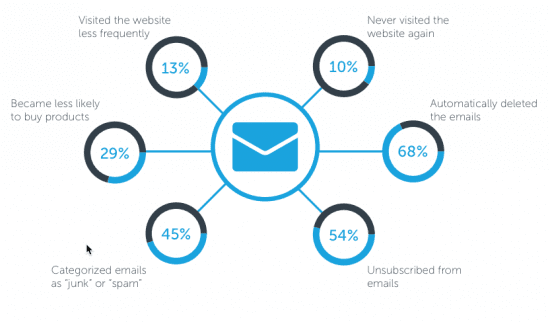6 tactics to get started with Customer Activation
As a marketing leader you know that each customer experiences numerous touch points with your company throughout their lifecycle. With Lifecycle marketing it’s the job of marketing to ensure that each interaction has a positive impact and moves the customer on to the next stage. But how can you measure the success of your combined efforts and their impact on your customer’s lifecycle? It's time to think about Customer Activation...
Customer Activation means motivating customers to move to the next stage of their lifecycle faster than they would on their own.
But, how do you activate your customers when you’re interacting with millions?
You need to think about your customers' lifecycle from potential customer to eventual advocacy. Cultivating relationships with your customers throughout their lifecycle is key to extracting maximum value from them.
Unfortunately many marketers fail in activation through not delivering effective, relevant emails. The problem is shown by the 98% of consumers surveyed in a recent Janrain study on solving the engagement gap, who said the information they receive from marketers is off target. And 94% of survey respondents reported taking one or more of the following actions after consistently being mis-targeted:

How to get started with Customer Activation
- 1. Get to know your customers: Engagement throughout the lifecycle isn’t just about the value you can cultivate from your relationship with the customer - it’s also about the value you can deliver to your customer. A recent McKinsey & Company global survey found that the ability to create sustainable and engaging customer relationships is the top priority for CMOs, even taking precedence over demonstrating bottom-line results.
- 2. Begin buyer persona creation: Buyer personas represent your target customers. Based on what you know about your customers’ demographics, behaviour, transactions, needs and motivations, each persona should capture something unique about that type of customer that can be used to better engage them. To create your buyer personas, interview your current customers, potential customers, and members of your organisation that interact with customers.
- 3. Identify digital behaviours: Building personas based on demographic information isn’t new. Taking into account a customer’s behaviour is now possible in our digital world, even with millions and millions of customers. Knowing your customers in terms of their demographics tells you who they are, but knowing how they behave tells you what they’re interested in.
- 4. Map customer journeys: Once you’ve defined your personas, you need to outline the stages of the customer lifecycle as a customer journey map. That way you can develop a strategy that speaks directly to customers based on where they are in the lifecycle.
Start by mapping out these stages based on the customer behaviours you note as customers move through the lifecycle. Pay attention to the channels your customers turn to and the types of information they want at each stage.
- 5. Take the reins: Move consumers through their lifecycle faster:
With your customer lifecycle and personas defined, you’re now in a position to deliver relevant, personalised information and content that addresses your customers’ interests and lifecycle stage. Specifically, you’ll be able to offer information and content that can trigger the customer to take action.
- 6. Identify customer stage and speed: Decide which stages you want to drive customers to, and which stages you want to ensure customers avoid. In other words, are customers getting stuck in stages you want to move them out of quickly? For example, do customers become dormant for a year after their first purchase? How can you keep customers engaged even if they’re not making a purchase?
If you’re like most marketers, you grasp the importance of moving away from a channel-or product-focused perspective to a customer-centric model. We understand that it can be daunting to think about making that shift.
To help create a plan to activate your customers we have produced a customer activation work sheet which includes a template showing the questions to answer before producing your customer activation plan. The questions we’ve outlined in this worksheet provide you with a solid framework to start aligning your efforts with the customer lifecycle

Thanks to
Lorna Purcell for sharing her advice and opinions in this post. Lorna is a Marketing Specialist EMEA at
Marketo. Marketo are Content Partners of Smart Insights. You can follow Lorna on
Twitter or connect on
LinkedIn.




 Thanks to
Thanks to 


